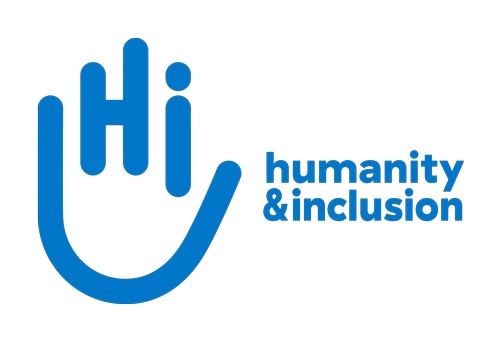MIW: Bringing intersectionality into practice
MIW and IFA publish the How-To Guide: Intersectionality in practice
The Humanity&Inclusion Making It Work Gender and Disability Project and the Inclusive Friends Association Nigeria are proud to publish the How-To Guide: Intersectionality in practice. It was co-developed all along 2021 by our two organizations, as a practical guide to support organizations to actually implement intersectional approach in their work. Because identities are diverse, discriminations are multiple and intersectional. Academics and policy-makers have been progressively bringing intersectionality at the agenda – giving space for the experiences of those facing discrimination based on age, (dis)ability, ethnicity, gender identities among other factors. Still, the effective use of intersectionality in projects implemented by women-led civil society organizations has shown to be challenging, due to the lack of practical guidance.
Women are not an homogeneous group. Neither are women with disabilities. Age, diversity of impairments, ethnicity, religion, socio-economic status, sexual orientation, gender identity, etc.: Bringing intersectionality in the design phase of projects implemented by women with disabilities will bring efficiency, accuracy and allow different lived experiences to be considered. Supporting women-led organizations to start with self-analyzing who they are and how their own diversity is impacting their projects is a must-do. Guiding them to actually analyze how discrimination factors impact the lives of individuals differently is crucial.
This Guide is providing with steps and tools to actually adopt an intersectional approach to design and initiate projects that will leave no woman behind. Although it was developed with a targeted intersectional approach where gender is at the center of the factors of discrimination, the How-To Guide can be used to approach any context and consider all the factors of discrimination to analyze the lived experiences of individuals of all genders and (dis)ability status.
Special thanks to Chloe Chaudorge who worked passionately on this Guide!
How are discrimination factors affecting the lives of women with disabilities in Jos and Riyom Local Government Areas, Plateau State, Nigeria? An intersectional analysis by Inclusive Friends Association
Inclusive Friends Association publishes its report titled "How are discrimination factors affecting the lives of women with disabilities in Jos and Riyom Local Government Areas, Plateau State, Nigeria? An intersectional analysis by Inclusive Friends Association".
The intersectional assessment conducted in parallel to co-developing the How-To Guide: Intersectionality in practice is now available in accessible PDF and in Word.
IFA interviewed those who influence communities, and representative organizations such as Faith-based women’s organisations, among others. They collected data and stories from women with disabilities in their diversities.
Read how the study and the analysis performed employed a qualitative intersectional approach, that allowed to identify the particular issues faced by women with disabilities, in particular linked with their intersecting identity factors, as well as reaching out to those the most at-risk. Being a single mother, belonging to a minority religious group, living in a rural area, among other identity are impacting those women's experiences: this is intersectionality in practice!
Intersectional Assessment of the Economic Exclusion of Women Involved in the Business Sector in Informal Settlements of Nairobi County, Kenya - by COVAW Kenya
Willing to deepen its understanding of tenets of the economic exclusion of the most marginalized women, COVAW in partnership with the Humanity & Inclusion Making It Work project implemented a 6 months project : “Analysing the Economic Exclusion of Women involved in the Business Sector in Informal Settlements of Nairobi County, using an Intersectional Approach”. The project aimed at conducting an intersectional assessment on challenges faced by women business owners in the informal settlements of Nairobi. Kenya's governmental actions that specifically target the informal economy are significant. However, the policies in existence do not offer enough framework in order for the necessary development for businesses in the informal sector, leaving gaps in the agenda, in particular for women with diverse identities falling through the cracks of social protection programmes. This report provides an overview of the various barriers faced by the women in their diversities when trying to operate their own business in the informal settlements of Nairobi, using an intersectional lens. COVAW and MIW hope that the key findings that emerged from this study will be brought to life to better the lives of the women most in need.
Copyright © 2025. All rights reserved.
